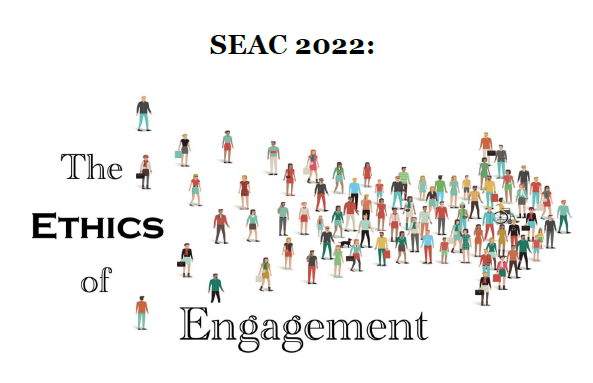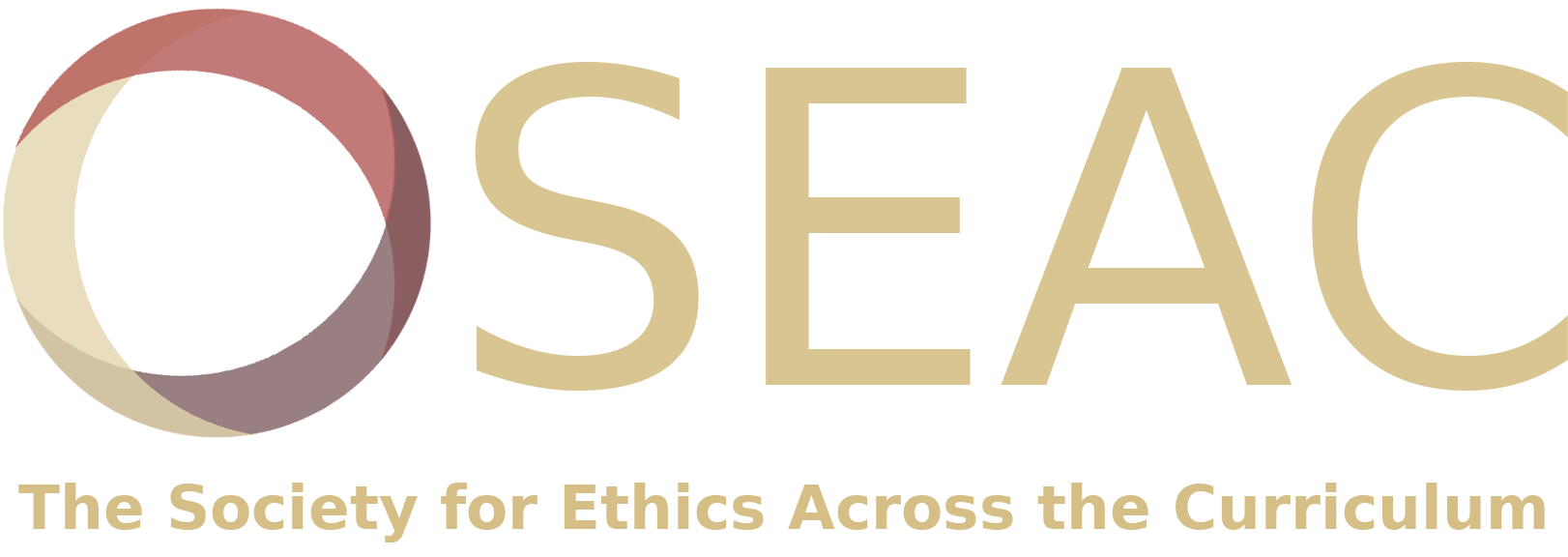
Concurrent Session 5A
Location
Ford Ballroom A, The Inn at Ole Miss
Start Date
7-10-2022 1:35 PM
End Date
7-10-2022 2:45 PM
Description
- Student Activism and the Removal of Eponyms that Glorify Unethical Researchers: Class Projects with Applied Outcomes (Virtual) / Judith Newman, Penn State—Abington College
In early October 2019, I concluded my presentation at the SEAC conference near Philadelphia with a brief mention of the fact that the Common Theme for my Penn State campus for that academic year was Student Activism and how we could incorporate such activism into our classrooms. Since my 2019 presentation was about some serious ethical violations in the research of famous Autism scholars like Asperger, Kanner, and Wakefield, I decided that it might be interesting to mention a bit at the end about a research project just being undertaken by two undergraduates in my Ethics course that semester. They were beginning a campaign to remove or contextualize eponyms like “Asperger Syndrome” from common usage given the dark history of the person being glorified in this eponym. Then the pandemic occurred. I had not attempted to update members of SEAC as to the results of the efforts of these students. I do mention this work in an Epilogue to a newly expanded and updated version (Hornblum, Newman & Dober, 2022) of a book originally (2013) entitled Against their Will: The Secret History of Medical Experimentation on Children in Cold War America. But since I’m not sure that this book has the same audience as does this conference, I would hope to virtually inform SEAC members of how student activism and protest has contributed to the removal and/or contextualization of eponyms for unethical researchers (e.g., Asperger, Kligman, Parran) as this topic seems rather relevant to this year’s 2022 SEAC conference theme. - How to make Dramatic yet Instructive Content Engaging and Inspiring / Yuliia Kravchenko, Columbia University
The young generation needs constantly updated educational programs and educational practices. This also applies to the ethics education. “The 1960s and the Dissident Movement: A Festival for Young People" is a innovative educational practice in promoting virtue and formation the culture of Human Rights. It began in 2017 in Kyiv, Ukraine, and has since then taken place annually. It is sponsored and organized by the National Centre “Junior Academy of Sciences of Ukraine.” This is an extra-curricular four-day in-person or two months online event. The aim of the festival is to popularize knowledge among school students about scholars and creative figures (writers, poets, directors, actors, designers, composers) who resisted the repressive Soviet system by placing their faith in human rights and by using culture to spread their message. Soviet dissidents’ heritage teaches us how to be responsible citizens and critically thinking personalities. The festival makes the dissidents’ topic fashionable and attractive, especially for youth, thankful for uniquely designed programs based on non-formal learning approaches. Through leaning on dissident heritage, the festivals promote democratic values. The educational experience of the festival is a good example of an alternative way of teaching ethics.
Session Chair: Kyle Fritz, University of Mississippi
Relational Format
conference proceeding
Recommended Citation
Newman, Judith; Kravchenko, Yuliia; and Fritz, Kyle, "Concurrent Session 5A" (2022). Society for Ethics Across the Curriculum Conference. 28.
https://egrove.olemiss.edu/seac/2022/schedule/28
COinS
Oct 7th, 1:35 PM
Oct 7th, 2:45 PM
Concurrent Session 5A
Ford Ballroom A, The Inn at Ole Miss
- Student Activism and the Removal of Eponyms that Glorify Unethical Researchers: Class Projects with Applied Outcomes (Virtual) / Judith Newman, Penn State—Abington College
In early October 2019, I concluded my presentation at the SEAC conference near Philadelphia with a brief mention of the fact that the Common Theme for my Penn State campus for that academic year was Student Activism and how we could incorporate such activism into our classrooms. Since my 2019 presentation was about some serious ethical violations in the research of famous Autism scholars like Asperger, Kanner, and Wakefield, I decided that it might be interesting to mention a bit at the end about a research project just being undertaken by two undergraduates in my Ethics course that semester. They were beginning a campaign to remove or contextualize eponyms like “Asperger Syndrome” from common usage given the dark history of the person being glorified in this eponym. Then the pandemic occurred. I had not attempted to update members of SEAC as to the results of the efforts of these students. I do mention this work in an Epilogue to a newly expanded and updated version (Hornblum, Newman & Dober, 2022) of a book originally (2013) entitled Against their Will: The Secret History of Medical Experimentation on Children in Cold War America. But since I’m not sure that this book has the same audience as does this conference, I would hope to virtually inform SEAC members of how student activism and protest has contributed to the removal and/or contextualization of eponyms for unethical researchers (e.g., Asperger, Kligman, Parran) as this topic seems rather relevant to this year’s 2022 SEAC conference theme. - How to make Dramatic yet Instructive Content Engaging and Inspiring / Yuliia Kravchenko, Columbia University
The young generation needs constantly updated educational programs and educational practices. This also applies to the ethics education. “The 1960s and the Dissident Movement: A Festival for Young People" is a innovative educational practice in promoting virtue and formation the culture of Human Rights. It began in 2017 in Kyiv, Ukraine, and has since then taken place annually. It is sponsored and organized by the National Centre “Junior Academy of Sciences of Ukraine.” This is an extra-curricular four-day in-person or two months online event. The aim of the festival is to popularize knowledge among school students about scholars and creative figures (writers, poets, directors, actors, designers, composers) who resisted the repressive Soviet system by placing their faith in human rights and by using culture to spread their message. Soviet dissidents’ heritage teaches us how to be responsible citizens and critically thinking personalities. The festival makes the dissidents’ topic fashionable and attractive, especially for youth, thankful for uniquely designed programs based on non-formal learning approaches. Through leaning on dissident heritage, the festivals promote democratic values. The educational experience of the festival is a good example of an alternative way of teaching ethics.
Session Chair: Kyle Fritz, University of Mississippi


